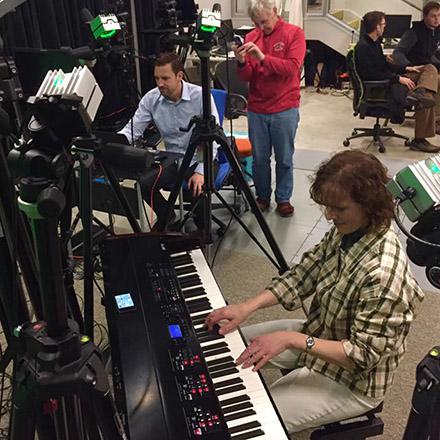Piano Study

Playing the piano requires remarkable coordination and motor control, skill acquired over literally decades of practice. Over the course of a lifetime, a pianist trains and performs on a wide variety of instruments requiring him/her to adapt to the nuances of each instrument, particularly with regard to resistance and the force necessary to skillfully depress the piano keys. Due in large part to the relative portability and low cost of the instruments, beginning piano students often practice on some type of electronic keyboard, the keys of which may or may not be touch sensitive and/or weighted/semi-weighted.
In this study, we use digital motion capture to quantify and compare pianists’ mechanics in playing a 2-octave, bimanual C major scale with regard to expertise (“non-expert” and “expert”) on four different instruments, a Steinway grand piano, Yamaha upright, Kawaii MP11, and a Kurzweil PC2.
Results of this study are relevant to pianists’ training and health since practice and performance take place on keyboard instruments of varying characteristics and quality which may have implications for pianists’ development not only technically and artistically, but perhaps most importantly with regard to the cultivation of healthy, injury and pain-free playing habits.